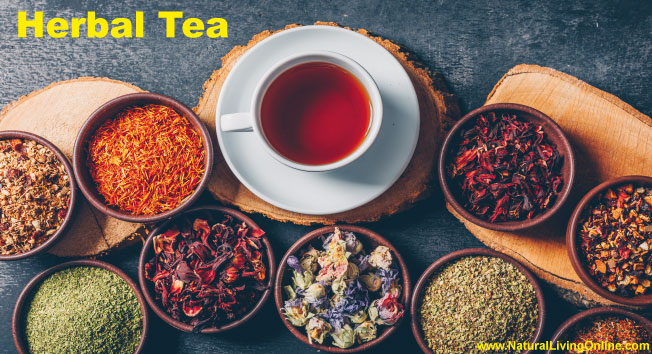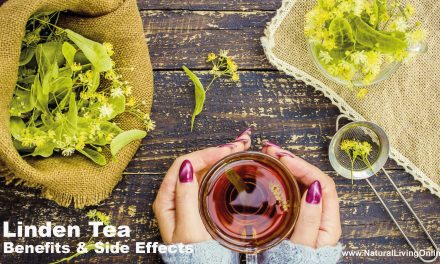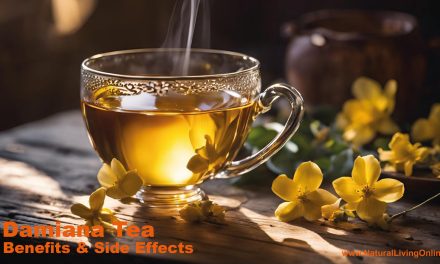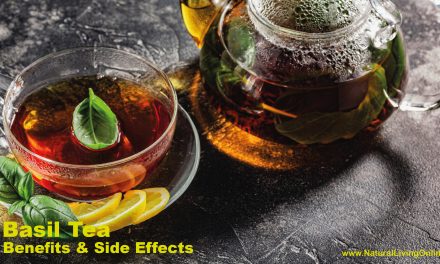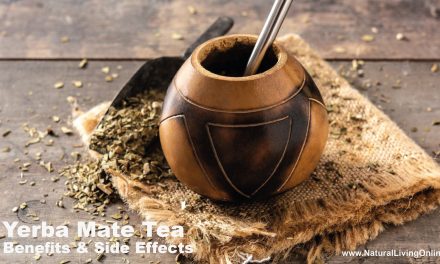Herbal tea, also called tisane (pronounced as tea-zahn), is a beverage made from the infusion or decoction of herbs, spices, or other plant material in hot water. Herbal teas also called botanical teas do not usually contain caffeine. The word “tisane” originates from the Greek word for pus, which is an apt description for many early herbal teas made by boiling plant matter in water. These brews were often used for medicinal purposes. Nowadays, herbal tea has become a general term for any non-caffeinated beverage made from steeping plants in hot water. This includes true teas, such as green tea and black tea, which come from the Camellia sinensis plant.
Herbal teas can be made with fresh or dried roots, leaves, seeds, or flowers of many plants. Many supermarkets and health food stores sell herbal tea bags. These are convenient, but they often contain very small amounts of herb compared to making your own tea from loose herbs.
There are endless possibilities when it comes to making your own herbal tea. You can experiment with different herbs and spices to find a combination that you enjoy.
Here are 20 of the most popular herbs and botanicals used to make herbal tea, along with their purported health benefits.
Chamomile
Chamomile (Matricaria chamomilla) tea is a popular herbal tea that is traditionally used as a sleep aid and to calm the nerves. Chamomile tea contains apigenin, a compound that binds to certain receptors in the brain that may promote sleepiness. Chamomile tea may also help relieve anxiety. The dried flowers of chamomile contain many terpenoids and flavonoids making it useful for many human ailments like hay fever, inflammation, muscle spasms, menstrual disorders, insomnia, ulcers, wounds, gastrointestinal disorders, rheumatic pain, and hemorrhoids.
Peppermint
Peppermint (Mentha piperita) tea is often used to soothe an upset stomach or aid in digestion. Peppermint tea contains menthol, a compound that has a cooling effect on the body. Menthol may also relax the muscles of the digestive tract, making peppermint tea a common home remedy for indigestion, nausea, and other stomach issues. It has many therapeutic benefits, such as prevention from cancer development and anti-obesity, antimicrobial, anti-inflammatory, anti-diabetic, and cardio protective effects, as a result of its antioxidant properties along with low toxicity and high efficacy.
Ginger
Ginger (Zingiber officinale) tea is often used to relieve nausea and vomiting. Ginger contains compounds like gingerol and shogaol that have anti-inflammatory and antioxidant effects. These compounds may also help relieve nausea by blocking certain signals in the brain that can trigger vomiting.
The clinical effects of ginger have been introduced as six subsections: nausea and vomiting, gastrointestinal function, pain, inflammation, metabolic syndromes, and other symptoms. (source)
Hibiscus
Hibiscus (Hibiscus sabdariffa) tea is high in antioxidants and has been traditionally used to treat high blood pressure. Hibiscus tea contains compounds like anthocyanins and flavonoids that have antioxidant effects. These compounds may help lower blood pressure by relaxing the muscles around your blood vessels, making it easier for blood to flow through them.
Study on animals found Hibiscus extract lowers blood pressure and total cholesterol, LDL-C, and triglycerides were also lowered.
Rooibos
Rooibos (Aspalathus linearis) tea is naturally caffeine-free and high in antioxidants. Rooibos tea contains compounds like quercetin and luteolin that have antioxidant effects. These compounds may help protect cells and molecules in the body from damage caused by free radicals.
A study in 2014 confirms rooibos herbal tea as good dietary antioxidant sources and, in conjunction with its many other components, offers a significantly enhanced antioxidant status of the liver in an induced oxidative stress situation.
Lemongrass
Lemongrass (Cymbopogon citratus) tea is traditionally used to promote relaxation and aid in digestion. Lemongrass tea contains compounds like citral and geraniol that have antioxidant and anti-inflammatory effects. These compounds may help relieve nausea, stomach pain, and bloating by relaxing the muscles of the digestive tract.
“Studies indicate that Cymbopogon citratus possesses various pharmacological activities such as anti-amoebic, antibacterial, antidiarrheal, antifilarial, antifungal and anti-inflammatory properties.” (source)
Hawthorn
Hawthorn (Crataegus laevigata) tea has traditionally been used to treat heart conditions like irregular heartbeat and high blood pressure. Hawthorn tea contains compounds like proanthocyanidins and flavonoids that have heart-protective effects. These compounds can help to improve blood flow and reduce inflammation in the arteries, which can help to prevent heart disease.
“Research suggests that hawthorn may potentially represent a safe, effective, nontoxic agent in the treatment of cardiovascular disease (CVD) and ischemic heart disease (IHD)” (source)
Lemon Balm
Lemon Balm (Melissa officinalis) tea has traditionally been used to treat anxiety and insomnia. Lemon Balm tea contains compounds like citral and linalool that have sedative effects. These compounds can help to relieve anxiety by binding to receptors in the brain that are responsible for regulating mood.
A study conducted in 2014 confirms effects of Lemon Balm on mood and cognitive function.
Rosemary
Rosemary (Rosmarinus officinalis) tea has traditionally been used to treat headaches and improve memory. Rosemary tea contains compounds like carnosic acid and rosemarinic acid that have antioxidant and anti-inflammatory effects. These compounds can help to protect the brain from damage and improve cognitive function.
Research shows that rosemary has anti-inflammatory, analgesic, anti-anxiety, and memory boosting effects.
Sage
Sage (Salvia officinalis) tea has traditionally been used to treat sore throat and improve memory. Sage tea contains compounds like thujone and terpene that have antioxidant and anti-inflammatory effects. These compounds can help to protect the brain from damage and improve cognitive function.
St John’s wort
St John’s wort (Hypericum perforatum) tea has traditionally been used to treat depression and anxiety. St John’s wort tea contains compounds like hyperforin and hypericin that have antidepressant effects. These compounds can help to relieve depression by inhibiting the reuptake of serotonin in the brain.
“The effectiveness of SJW as an antidepression agent is particularly well studied, and the underlying mechanisms are well understood.” (research) It has also proven to be effective in treating other ailments, including cancer, inflammation-related disorders, and bacterial and viral diseases, and as an antioxidant and neuroprotective agent.
Rose Hip
Rose hip (Rosa canina) tea has traditionally been used to treat arthritis and improve immunity. Rose hip tea contains compounds like vitamin C, flavonoids, and carotenoids that have antioxidant effects. These compounds can help to protect the body from damage and improve immunity.
“Medicinal interest in rose hips has increased as a consequence of recent research that has studied its potential application as a treatment for several diseases including skin disorders, hepatotoxicity, renal disturbances, diarrhoea, inflammatory disorders, arthritis, diabetes, hyperlipidaemia, obesity and cancer.” (Therapeutic Applications of Rose Hips from Different Rosa Species)
Valerian
Valerian (Valeriana officinalis) tea has traditionally been used to treat insomnia and anxiety. Valerian tea contains compounds like valerenic acid and valerenal that have sedative effects. These compounds can help to relieve insomnia by reducing the time it takes to fall asleep and increasing the duration of sleep.
Study suggests that it may improve sleep quality without side effects.
Dandelion
Dandelion (Taraxacum officinale) tea has traditionally been used to treat constipation and liver problems. Dandelion tea contains compounds like taraxasterol and taraxacin that have laxative effects. These compounds can help to relieve constipation by increasing the amount of water in the intestine and stimulating bowel movements.
Echinacea
Echinacea (Echinacea purpurea) tea has traditionally been used to treat colds and flu. Echinacea tea contains compounds like echinacein and caftaric acid that have immune-stimulating effects. These compounds can help to reduce the duration and severity of colds and flu by stimulating the immune system.
Passionflower
Passionflower (Passiflora incarnata) tea has traditionally been to treat anxiety and insomnia. Passionflower tea contains compounds like chrys and passiflorine that have sedative effects. These compounds can help to relieve anxiety and insomnia by reducing the time it takes to fall asleep and increasing the duration of sleep.
“The extracts obtained from Passiflora incarnata can be considered as appropriated sleep inducers.” [4]
Turmeric
Turmeric (Curcuma longa) tea has traditionally been used to treat arthritis and indigestion. Turmeric tea contains compounds like curcumin and turmerone that have anti-inflammatory effects. These compounds can help to reduce the symptoms of arthritis by reducing inflammation.
“Research suggests that curcumin can help in the management of oxidative and inflammatory conditions, metabolic syndrome, arthritis, anxiety, and hyperlipidemia.” [5]
Kava
Kava (Piper methysticum) tea has traditionally been used to treat anxiety and insomnia. Kava tea contains compounds like kavalactones and kavapyrones that have sedative effects. These compounds can help to relieve anxiety and insomnia by reducing the time it takes to fall asleep and increasing the duration of sleep. Studies suggest Kava has anti-anxiety and sleep-inducing properties.
Cinnamon
Cinnamon (Cinnamomum verum) tea has traditionally been used to treat indigestion and nausea. Cinnamon tea contains compounds like catechins and proanthocyanidins that have antioxidant effects. These compounds can help to reduce the symptoms of indigestion and nausea by reducing inflammation.
“In addition to being an antioxidant, anti-inflammatory, antidiabetic, antimicrobial, anticancer, lipid-lowering, and cardiovascular-disease-lowering compound, cinnamon has also been reported to have activities against neurological disorders, such as Parkinson’s and Alzheimer’s diseases.” [3]
Guayusa
Guayusa (Ilex guayusa) tea has traditionally been used to treat fatigue and improve mental performance. Guayusa tea contains compounds like caffeine and theobromine that have stimulant effects. These compounds can help to increase alertness and energy levels by stimulating the nervous system.
These are just a few of the many different types of herbal and botanical teas that are available. If you’re interested in trying any of these teas, be sure to talk to your healthcare provider first to make sure they’re right for you.
Caution, Herbal tea interaction with drugs
Herbal tea can interact with certain medications, since they possess medicinal and therapeutic properties. If you’re taking any medications, it’s important to talk to your healthcare provider before drinking herbal tea to make sure it’s safe for you. Herbs can interact with other medication in a number os ways. They can increase the effects of the medication, decrease the effects of the medication, make the medication more or less effective, and can cause unwanted side effects. (Benefits and side effects of herbs)
References:
[1] Echinacea purpurea: Pharmacology, phytochemistry and analysis methods
[3] Cinnamon: A Multifaceted Medicinal Plant
[4] Effect of a medicinal plant (Passiflora incarnata L) on sleep
[5] Curcumin: A Review of Its’ Effects on Human Health
This website does not provide medical advice.
All information provided on this website, and on associated social media networks, including but not limited to texts, images, and numbers are for general information purpose only. It is not intended as medical advice and it does not include all possible precautions, side effects, or interactions that may occur. Neither NaturalLivingOnline.com nor its author/founder take responsibility for how you use this information. Statements contained on NaturalLivingOnline.com have not been evaluated by the FDA. You should conduct thorough research via multiple sources and consult your physician or qualified doctor before using any essential oil or herbal remedy. Information on NaturalLivingOnline.com must not be relied upon for medical, legal, financial or other decisions.

